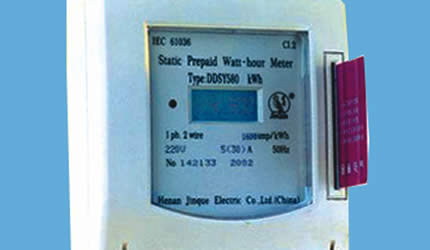Suppliers delay Zesa meter plan

meters early this year.
The meters were supposed to be used for Zesa’s pilot project on the installation of pre-paid meters.
Zesa officials said ZTE only delivered 2 000 pre-paid meters by plane yesterday after the ultimatum was issued.
Zimbabwe Electricity Transmission and Distribution Company managing director Engineer Julian Chinembiri yesterday said the power utility wrote to the companies informing them of the position.
“We have written to the two (companies) because the meters should have been supplied long back, but to date they have failed.
“We have given them 14 days to deliver the meters because we want to move forward with the project. If they fail, then we are left with no option but to contract other suppliers,” he said.
Zesa needs about US$60 million to install pre-paid meters countrywide.
Payment is done on installed meters.
ZETDC senior project manager Eng Wilfred Shereni said they were expecting 35 000 meters this month from local companies Solahart and Finmark.
“We are expecting 20 000 pre-paid meters from Solahart while Finmark will bring close to 15 000 before the end of this month.”
Zimbabwe has 600 000 registered consumers that should have pre-paid meters in the next 10 months.
Zesa has installed 32 000 meters in Harare and Bulawayo since the project started in August.
Installation is expected to start soon in other areas.
Eng Chinembiri said plans were under way to appoint third party vending platforms for consumers to buy credit for pre-paid meters.
At the moment, credit vending points are in selected ZETDC offices in Harare and Bulawayo.
Minimum denominations for recharge cards are US$5.
There is, however, no limit on the amount of electricity a consumer can buy.
The new pre-paid meter system gives consumers control over their electricity usage.
The system is expected to improve efficiency in electricity usage, Zesa’s revenue flows and denting the debt consumers owe the power utility.
The smart meters replace the conventional billing system that posed challenges to the power utility and the consumers.
Consumers have refused to settle their bills, arguing Zesa’s billing system was based on estimates.
Under the pre-paid meter system, those owing Zesa will have 20 percent of the amount paid for electricity deducted to settle the debt.
The meter is installed free of charge.
Zesa is owed more than US$600 million by domestic and commercial consumers.
The poor debt management system has also seen Zesa struggling to settle foreign debts.









Comments